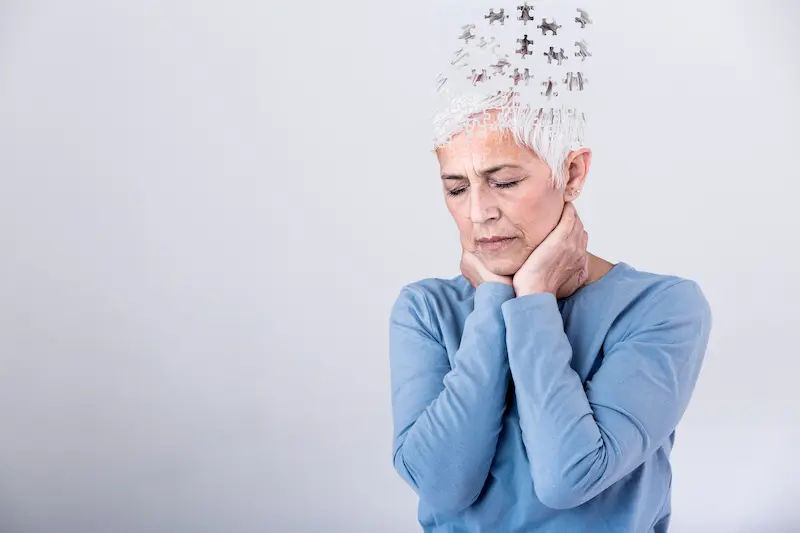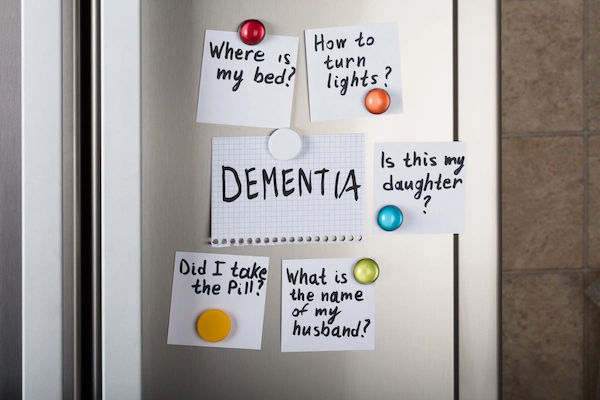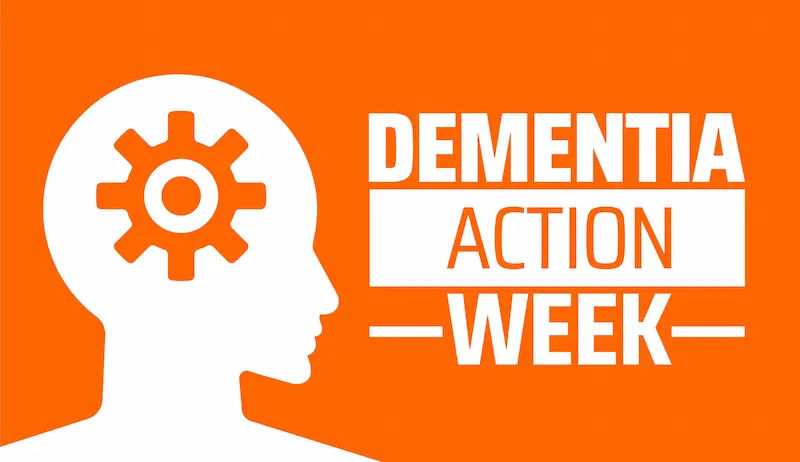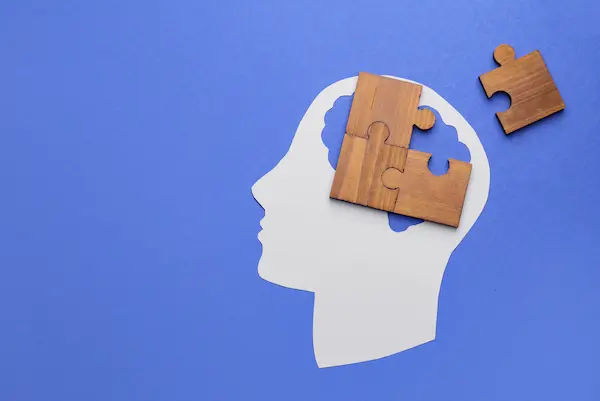Guide to Everything You Need To Know About Dementia
Discover everything you need to know about dementia, including symptoms, causes, stages, treatment options, and care strategies. A complete guide for patients, caregivers, and families seeking reliable information and support.

Written by Dr. Md Yusuf Shareef
Reviewed by Dr. Rohinipriyanka Pondugula MBBS
Last updated on 13th Jan, 2026

Dementia is an umbrella term that describes a wide range of symptoms associated with a decline in memory, reasoning, and other cognitive skills. It's a progressive condition that impacts millions of individuals and their families worldwide, yet it remains widely misunderstood. Many people fear a dementia diagnosis, but knowledge is the most powerful tool for navigating this journey. This guide aims to demystify everything related to dementia, from recognising the earliest subtle signs to understanding the different types and exploring modern management strategies. We will walk you through the causes, risk factors, diagnostic process, and most importantly, the ways to provide compassionate care and maintain quality of life. Whether you're concerned for yourself, a loved one, or simply seeking to be informed, this comprehensive resource is your starting point for understanding this complex condition.
What is Dementia?
Dementia is not a single disease, but rather a syndrome – a group of symptoms that severely affect social and intellectual abilities enough to interfere with daily life. It is caused by damage to brain cells, which disrupts their ability to communicate with each other. This breakdown in neural communication leads to impairments in thinking, behaviour, and feelings.
While memory loss is a common hallmark, it's crucial to understand that dementia encompasses much more. It can affect language, problem-solving skills, visual perception, and the ability to focus and pay attention. Changes in mood and personality are also frequent. It is not a normal part of ageing, though the risk increases significantly with age.
Dementia vs. Alzheimer's: What's the Difference?
This is one of the most common points of confusion. Think of it this way: Dementia is the category, and Alzheimer's is the most common cause.
• Dementia: The overall term for symptoms related to cognitive decline. It's like saying "heart disease."
• Alzheimer's Disease: A specific brain disease that accounts for 60-80% of all dementia cases. It's like saying "a heart attack," which is a specific type of heart disease. Other conditions, like strokes or Lewy body disease, can also cause dementia symptoms.
How Dementia Affects the Brain?
Different types of dementia are associated with damage to different regions of the brain and different types of brain cell damage. For example, in Alzheimer's disease, high levels of certain proteins inside and outside brain cells (amyloid plaques and tau tangles) make it hard for cells to stay healthy and communicate. In vascular dementia, blood vessel blockages or reduced blood flow starve brain cells of oxygen and nutrients. This localised damage is why symptoms can vary so greatly from one person to another.
Early, Middle, and Late-Stage Symptoms
Symptoms of dementia progress at different rates and in different patterns. Early recognition is key to getting timely support and planning for the future.
The 10 Most Common Early Warning Signs of Dementia
1. Memory Loss That Disrupts Daily Life: Forgetting recently learned information, important dates or events, asking for the same information repeatedly.
2. Challenges in Planning or Solving Problems: Changes in the ability to work with numbers, follow a familiar recipe, or manage monthly bills.
3. Difficulty Completing Familiar Tasks: Trouble driving to a familiar location, managing a budget, or remembering the rules of a favourite game.
4. Confusion with Time or Place: Losing track of dates, seasons, and the passage of time. Forgetting where they are or how they got there.
5. Trouble Understanding Visual Images and Spatial Relationships: Difficulty reading, judging distance, and determining colour or contrast, which can cause problems with driving.
6. New Problems with Words in Speaking or Writing: Trouble following or joining a conversation. Stopping mid-conversation and struggling to continue.
7. Misplacing Things and Losing the Ability to Retrace Steps: Putting things in unusual places and being unable to go back over their steps to find them. May sometimes accuse others of stealing.
8. Decreased or Poor Judgment: Experiencing changes in judgment or decision-making, such as paying less attention to grooming or giving large amounts of money to telemarketers.
9. Withdrawal from Work or Social Activities: Removing themselves from hobbies, social activities, or projects at work.
10. Changes in Mood and Personality: Becoming confused, suspicious, depressed, fearful, or anxious. They may be easily upset at home, at work, with friends, or in places where they are out of their comfort zone.
Behavioural and Psychological Symptoms of Dementia (BPSD)
As the condition progresses, many individuals experience non-cognitive symptoms, often the most challenging for caregivers. These can include:
• Agitation: Pacing, restlessness, verbal or physical aggression.
• Anxiety: Worrying about upcoming events or changes in routine.
• Depression: Persistent sadness, loss of interest.
• Hallucinations: Seeing or hearing things that aren't there.
• Delusions: Holding fixed, false beliefs (e.g., that a caregiver is an impostor).
• "Sundowning": A state of confusion, anxiety, and agitation that often occurs in the late afternoon and evening.
The Different Types of Dementia Explained
Understanding the specific type is crucial for management, as treatments and progression can differ.
Alzheimer's Disease: The Most Prevalent Form
Alzheimer's is characterized by the gradual worsening of memory and other cognitive domains. It typically begins in the hippocampus, the brain's memory center. Early symptoms of Alzheimer's disease often involve difficulty remembering new conversations or events.
Vascular Dementia: Linked to Blood Flow Issues
This type occurs after a stroke or series of "mini-strokes" (TIAs) that block blood vessels in the brain. Symptoms often appear suddenly and may include impaired judgment, difficulty planning, and problems with concentration, rather than memory loss initially.
Lewy Body Dementia: Recognising Fluctuations and Hallucinations
Lewy body dementia involves abnormal protein deposits (Lewy bodies) in the brain. Key features include:
• Significant fluctuations in alertness and attention.
• Visual hallucinations.
• Parkinsonian symptoms like rigid muscles and slow movement.
• REM sleep behaviour disorder (acting out dreams).
Frontotemporal Dementia: Changes in Personality and Language
This group of disorders targets the frontal and temporal lobes, areas associated with personality, behaviour, and language. It often presents at a younger age. People may exhibit significant changes in social conduct, become impulsive, emotionally blunt, or have increasing trouble with speech and word comprehension.
Consult Top Specialists
Causes and Risk Factors: What Increases the Likelihood?
While the exact cause of most types of dementia is unknown, several factors influence the risk.
Non-Modifiable Risk Factors (Age, Genetics, Family History)
• Age: The strongest known risk factor. The likelihood doubles approximately every five years after age 65.
• Genetics: A family history of dementia increases risk. Specific genes, like the APOE ε4 allele, are known to increase the risk for Alzheimer's, though not everyone with the gene develops it.
Modifiable Risk Factors (Heart Health, Diet, Exercise)
Research suggests that a brain-healthy lifestyle can significantly reduce risk or delay onset. These factors are closely tied to vascular health:
• Cardiovascular Health: High blood pressure, high cholesterol, diabetes, and smoking all damage blood vessels, increasing the risk for both vascular dementia and Alzheimer's.
• Physical Inactivity: Regular exercise promotes blood flow to the brain.
• Poor Diet: Diets high in saturated fats and sugars and low in fruits, vegetables, and whole grains are detrimental.
• Social Isolation and Cognitive Inactivity: An engaged and socially active brain may build a "cognitive reserve."
Getting a Diagnosis
If you notice persistent signs of cognitive decline, seeking a professional evaluation is critical. Many treatable conditions, like vitamin deficiencies or thyroid problems, can mimic dementia.
The Importance of a Professional Medical Evaluation
A proper diagnosis provides:
• Closure and an Explanation: Understanding what is happening.
• Access to Treatment: Early intervention can slow progression.
• Opportunity to Plan: Allows the person to be involved in legal, financial, and care planning.
• Management of Symptoms: Helps address behavioural and psychological symptoms effectively.
Common Tests and Assessments for Cognitive Decline
The diagnostic process is multi-faceted:
1. Medical History and Physical Exam: A doctor will review symptoms, family history, and medications.
2. Lab Tests: Blood tests can rule out other causes of symptoms. Apollo24|7 offers convenient home collection for tests like vitamin B12 levels or thyroid function, which can be crucial in the diagnostic process.
Get The Tests Here
3. Cognitive and Neuropsychological Tests: These assess memory, problem-solving, language, and math skills.
4. Brain Scans: CT, MRI, or PET scans can identify strokes, tumours, or changes in brain structure associated with different dementias.
If you or a loved one are experiencing persistent memory issues, consult a doctor online with Apollo24|7 for an initial evaluation and guidance on the next steps.
Treatment and Management
While most dementias are progressive and currently have no cure, treatments can temporarily improve symptoms and quality of life.
Medications to Manage Symptoms and Slow Progression
Cholinesterase Inhibitors (Donepezil, Rivastigmine, Galantamine): These work by boosting levels of a chemical messenger involved in memory and judgment. They are primarily used for Alzheimer's but can help with other dementias.
• Memantine: This regulates the activity of glutamate, another chemical messenger, and is used for moderate to severe Alzheimer's.
• Medications for BPSD: Antidepressants, anti-anxiety, or antipsychotic medications may be used cautiously to manage specific behavioral symptoms.
Non-Drug Therapies: Cognitive Stimulation, Music, and Reminiscence
These approaches are vital for maintaining well-being:
• Cognitive Stimulation Therapy (CST): Involves group activities and exercises designed to improve memory and problem-solving skills.
• Music Therapy: Music can reduce agitation and anxiety, evoke memories, and promote social interaction.
• Reminiscence Therapy: Discussing past experiences, often with the aid of photos or familiar objects, to improve mood and cognition.
Creating a Safe and Supportive Home Environment
Simple modifications can greatly enhance safety and reduce confusion:
• Establish a simple, daily routine.
• Install night-lights and remove tripping hazards
• Use calendars, whiteboards, and labels for orientation.
• Simplify tasks and break them into easy steps.
Support and Strategies
Caring for a person with dementia is physically and emotionally demanding. Caregiver support is not a luxury; it's a necessity.
Essential Tips for Communicating with a Loved One with Dementia
• Set a positive mood: Use facial expressions, tone of voice, and physical touch.
• Get their attention: Limit distractions. Address them by name.
• State your message clearly: Use simple words and sentences. Speak slowly and reassuringly.
• Ask simple, answerable questions: Ask one question at a time; yes/no questions work best.
• Listen with your ears, eyes, and heart: Be patient and look for nonverbal cues.
Managing Stress and Avoiding Caregiver Burnout
• Ask for and accept help: Don't try to do it all alone.
• Take breaks: Use respite care services to recharge.
• Join a support group: Connecting with others in similar situations provides emotional support and practical advice.
• Take care of your own health: Your well-being is essential to being an effective caregiver.
Can Dementia Be Prevented?
While there's no guaranteed way to prevent dementia, strong evidence suggests that adopting a healthy lifestyle can significantly reduce your risk.
• Keep Your Heart Healthy: What's good for your heart is good for your brain. Manage blood pressure, cholesterol, and blood sugar.
• Stay Physically Active: Aim for at least 150 minutes of moderate aerobic activity per week.
• Eat a Brain-Healthy Diet: Diets like the Mediterranean or MIND diet, rich in berries, leafy greens, nuts, and whole grains, are associated with lower dementia risk.
• Stay Mentally and Socially Active: Challenge your brain with puzzles, learn new skills, read, and maintain an active social life.
Conclusion
Understanding dementia is the first step toward dispelling fear and building a framework for effective care and support. This journey, while undeniably challenging, can be navigated with compassion, knowledge, and the right resources. From recognizing the early symptoms of cognitive decline to exploring the various types and implementing management strategies, empowerment comes through education. Remember, a diagnosis does not define the person; with the right approach, it's possible to focus on abilities rather than disabilities and to find moments of connection and joy throughout the progression of the condition. If you have concerns, take that proactive step—talk to a healthcare professional, seek support, and remember that you are not alone on this path.
Consult Top Specialists
Consult Top Specialists

Dr. Dipti Ranjan Tripathy
Neurologist
15 Years • MBBS, MD (GENERAL MEDICINE ),DM (NEUROLOGY)
Rourkela
Apollo Hospitals, Rourkela, Rourkela
(25+ Patients)

Dr. Uddalak Chakraborty
Neurologist
8 Years • MBBS, MD(GENL.MED.),DM(NEUROLOGY)
Kolkata
MCR SUPER SPECIALITY POLY CLINIC & PATHOLOGY, Kolkata
Dr. Srinivas M
Neurologist
13 Years • MBBS, MD General Medicine, DM Neurology.
Bengaluru
Apollo Hospitals Sheshadripuram, Bengaluru
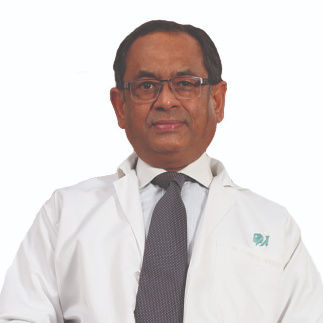
Dr. Rajendra Prasad
Spine Surgeon
36 Years • MBBS. FRCS (Glas) U.K FRCS (Neurosurgery) Intercollegiate Specialty Board in Neurosurgery (U.K). Fellowship in Spine Surgery, Stanmore, London U.K. Specialist Registration in Neurosurgery with General Medical Council. U.K
Delhi
Apollo Hospitals Indraprastha, Delhi
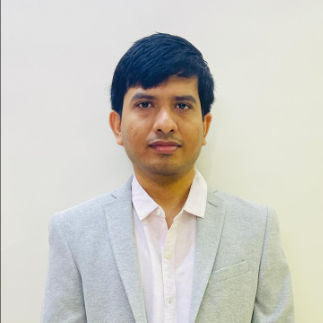
Dr. Sanket Patel
Neurologist
4 Years • MBBS, DNB Medicine, DrNB Neurolgy
Ahmedabad
Apollo Hospitals - Gandhinagar, Ahmedabad, Ahmedabad
Consult Top Specialists

Dr. Dipti Ranjan Tripathy
Neurologist
15 Years • MBBS, MD (GENERAL MEDICINE ),DM (NEUROLOGY)
Rourkela
Apollo Hospitals, Rourkela, Rourkela
(25+ Patients)

Dr. Uddalak Chakraborty
Neurologist
8 Years • MBBS, MD(GENL.MED.),DM(NEUROLOGY)
Kolkata
MCR SUPER SPECIALITY POLY CLINIC & PATHOLOGY, Kolkata
Dr. Srinivas M
Neurologist
13 Years • MBBS, MD General Medicine, DM Neurology.
Bengaluru
Apollo Hospitals Sheshadripuram, Bengaluru

Dr. Rajendra Prasad
Spine Surgeon
36 Years • MBBS. FRCS (Glas) U.K FRCS (Neurosurgery) Intercollegiate Specialty Board in Neurosurgery (U.K). Fellowship in Spine Surgery, Stanmore, London U.K. Specialist Registration in Neurosurgery with General Medical Council. U.K
Delhi
Apollo Hospitals Indraprastha, Delhi

Dr. Sanket Patel
Neurologist
4 Years • MBBS, DNB Medicine, DrNB Neurolgy
Ahmedabad
Apollo Hospitals - Gandhinagar, Ahmedabad, Ahmedabad
More articles from Dementia
Frequently Asked Questions
1. What is the life expectancy for a person with dementia?
Life expectancy varies greatly depending on the type of dementia, age at diagnosis, and overall health. On average, a person may live 4 to 8 years after diagnosis, but some can live as long as 20 years.
2. Is dementia hereditary?
In most cases, dementia is not directly inherited. While having a family member with it increases your risk, it does not mean you will definitely develop it. There are very rare, inherited forms of Alzheimer's that onset at a much younger age, but these account for less than 1% of cases.
3. What's the difference between dementia and mild cognitive impairment (MCI)?
MCI is a stage between the expected cognitive decline of normal aging and the more serious decline of dementia. People


